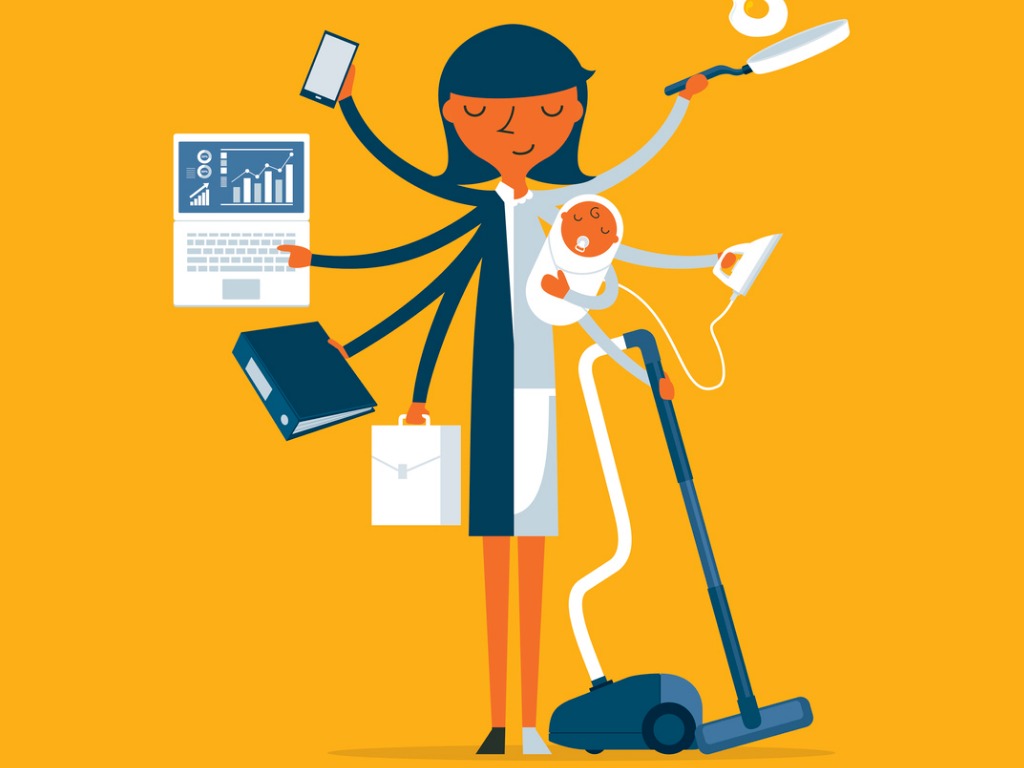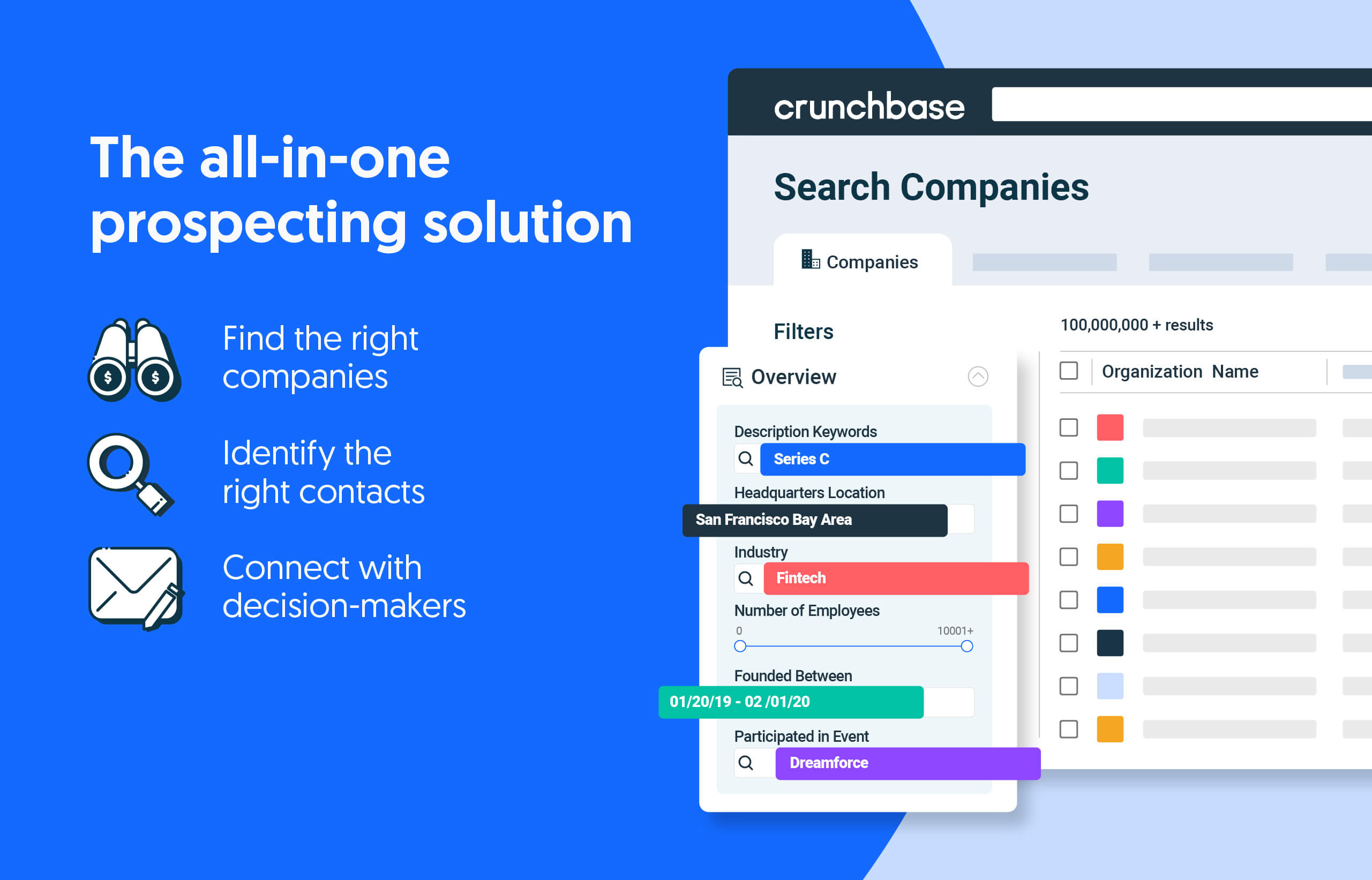I’m a mom, and while I have two kids who have taught me much about being said mom, they have also caused me to do a lot of my own research.
That research, as a biomedical engineer, former academic and a mother, has led me to realize that what women’s health (and its related tech) needs is more research and development.
As an entrepreneur and founder of a family health company, there is nothing that grinds my gears more than anyone boxing-in women’s health as “niche.”
Search less. Close more.
Grow your revenue with all-in-one prospecting solutions powered by the leader in private-company data.
I’ve written about this issue in terms of better policy needed. And, while I continue to be grateful for all the investors taking note of female founders focused on launching and growing women’s health, we need to dramatically upgrade research, development and translation of innovation surrounding women’s health issues.
Let’s start with clinical trials. Riddle me this: Why aren’t more pregnant and lactating women included in clinical trials? This is insane to me. We are excluded, thus nothing feels safe when you are pregnant or breastfeeding because no one has any data to inform what to tell you. That said, here’s a quick bright spot.
A bipartisan group of 65 representatives has come together to recommend the extension of the charter for the federal Task Force on Research Specific to Pregnant Women and Lactating Women. But, we need more: Breastfeeding and pregnant women are indeed an important data set within the larger data of humans.

Next, women innovators need an active, engaged seat at the table, helping to design the next generation of women’s health products with their own lived experience whenever possible. Why and how would a man know more about what it’s like to be in a woman’s body? There are plenty of women innovators ready to join this effort. At my alma mater, more than 75 percent of the undergrads majoring in biomedical engineering are women, so this is not a pipeline problem.
I can’t express enough how much this matters. My own mom was one of only two women on the team of approximately 50 that designed the spacesuits for shuttle astronauts, which included the first female astronauts. Before my mom and her colleague stepped in, the FUCD (female urinary collection device—yup, pronounced just how you think) was going to involve sticking a tube up a woman’s urethra (#ouch). And, without the pioneering leadership and interception of Judy Resnik, the spacesuit was going to have a harder upper torso design which would have been extremely physically limiting to anyone with breasts.
Yes, all astronauts need to pee and move around. Why is it that women have to impart common sense when it comes to women in business, life and health? Sadly, there is an endless list of examples of this across a number of industries.
Lastly, a recent peer-reviewed analysis shows that NIH throws more funding behind helping men’s diseases; women’s diseases remain underfunded. This is often due to the fact that the institute’s decision-makers are largely men. Women and BIPOC stakeholders deserve fair representation on panels reviewing them so the issues impacting us don’t get discounted and overlooked.
When I applied for an NIH SBIR grant, 17 out of 20 reviewers were male, stating that they didn’t see issues surrounding breastfeeding and baby feeding as a problem area. Are you, sir, a postpartum woman? If not, I dare you to talk to any postpartum woman, and I’d bet the farm that she may agree with me.
So what to do? Let’s start with the low hanging fruit: Congress should extend the federal Task Force on Research Specific to Pregnant Women and Lactating Women. In addition, 50 percent of SBIR review panels should include women and non-binary individuals. SBIR programs, I appreciate you, but please ensure the reviewers are diverse and representative of what America looks like in 2022.
Higher fruit, but not less important: R&D systems need a level change. Organizations need to take a hard look at the women’s health development efforts and support women technology leaders and team members. We need women to represent at least half of their development teams, and academic institutions need to infuse women’s health into their educational curriculum, training programs and early-stage research labs.
While I cannot speak for everyone’s lived experiences, I can honestly speak for many more women, mothers, daughters. And if you don’t believe me, just go do your own empirical research, and development—ask women what they think and need. They’ll tell you.
Andrea Ippolito is founder of SimpliFed, and a leader in entrepreneurship and health tech. She is also the program lead of Women Entrepreneurs (WE) Cornell, and has testified before the Small Business Committee in Congress. She has previously written for Crunchbase News on women’s issues in the startup ecosystem.
Blogroll illustration: Dom Guzman

Stay up to date with recent funding rounds, acquisitions, and more with the Crunchbase Daily.


You must be logged in to post a comment.